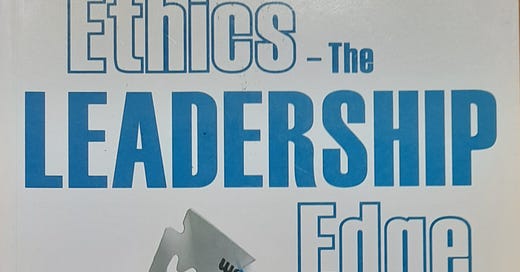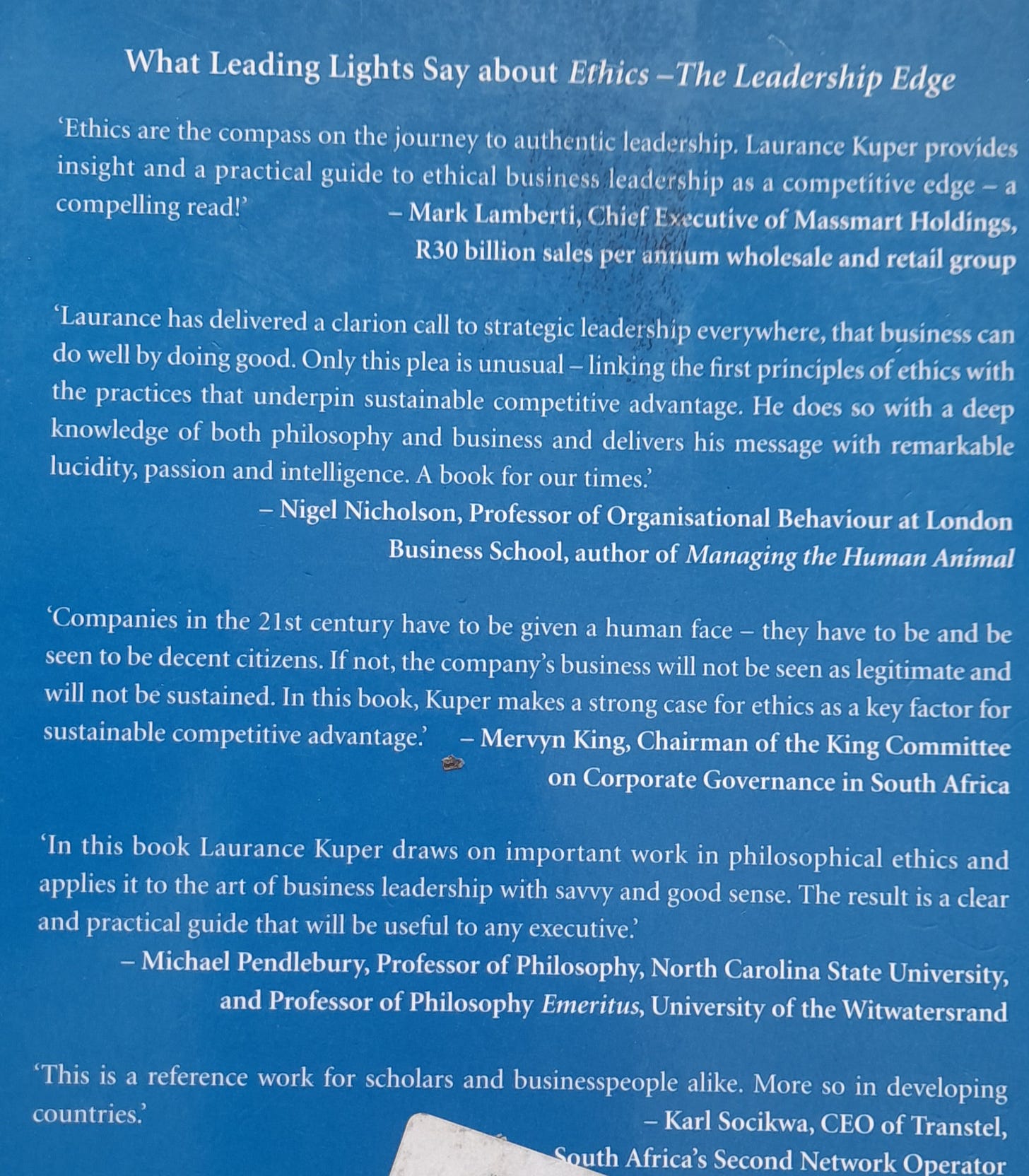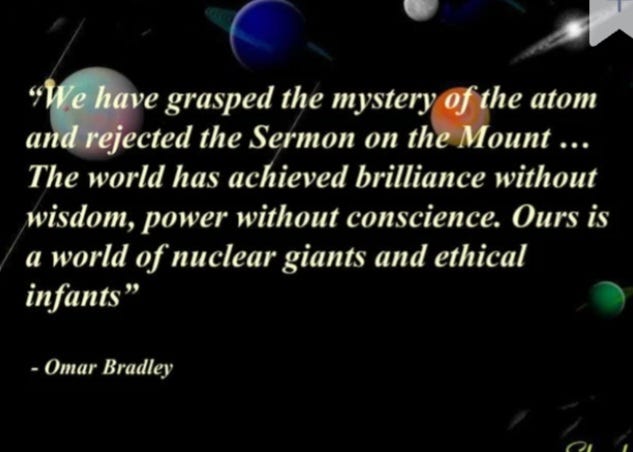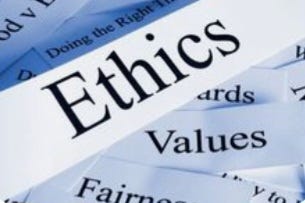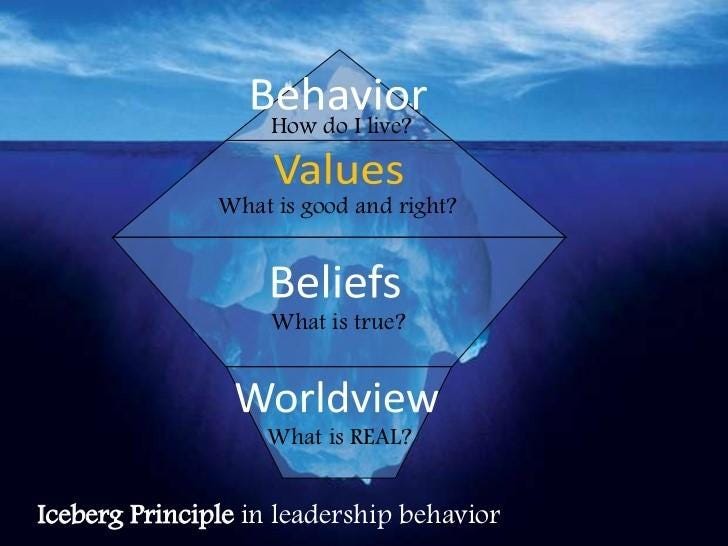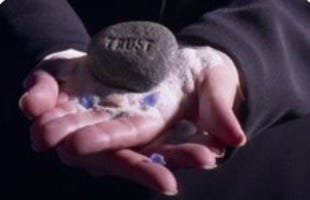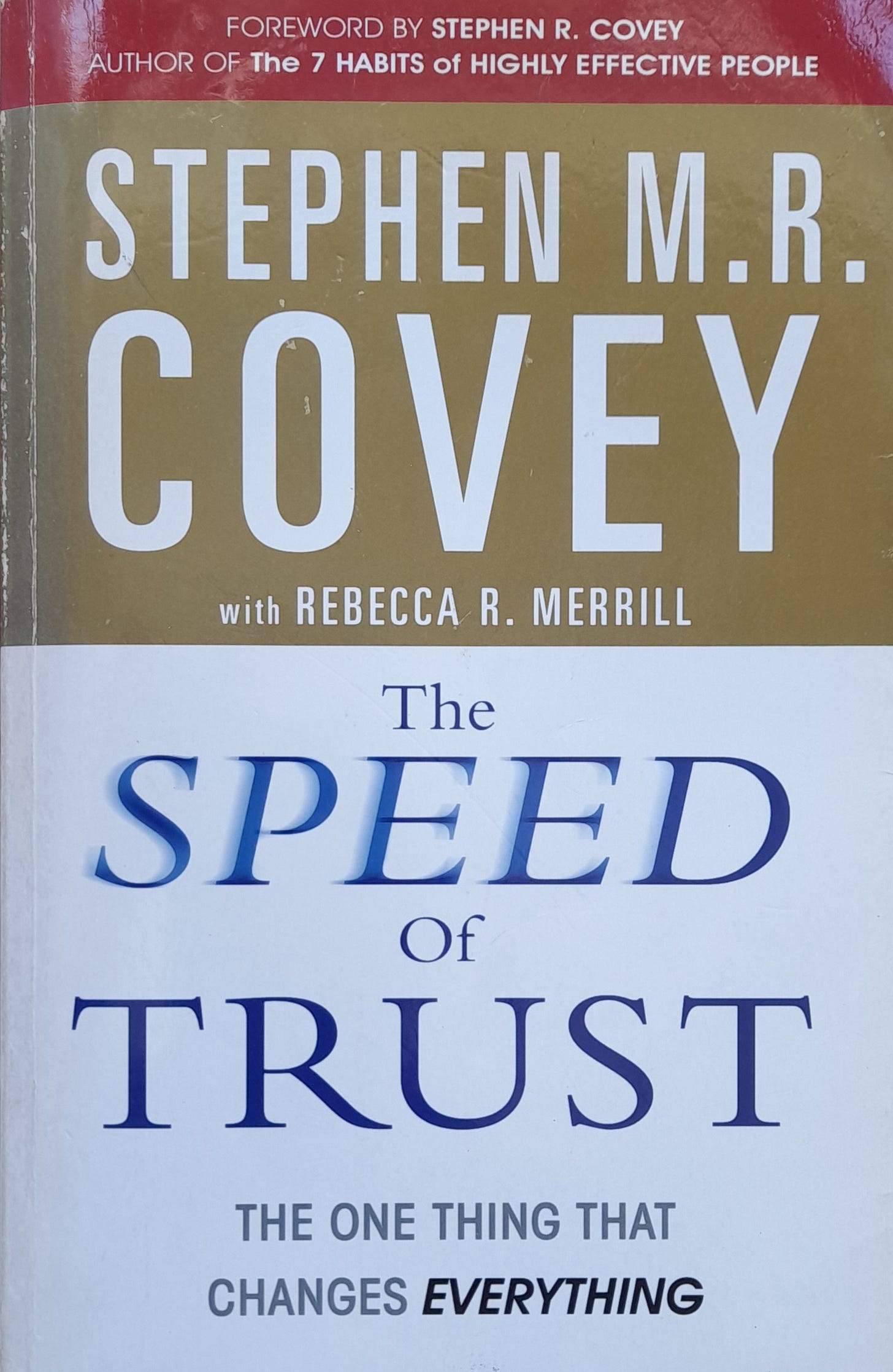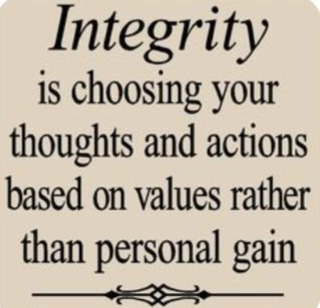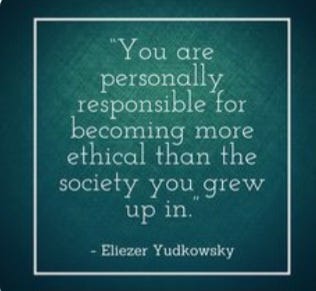I first wrote an article on this subject matter in May 2008, and it got published in Pulse which was the newsletter of Leading Values Strategy Consultants which I was co-partner of at the time.
This current substack is an amended version of the above article which I had later reworked and published via Word Press in April 2015.
See also my recent ‘WE need to Rediscover the Common Good and Be a Contribution: Explorations in Life and Leadership’ from which this substack flows:https://rogerarendse.substack.com/p/we-need-to-rediscover-the-common
Introduction
I bought Laurance Kuper’s book, Ethics-the Leadership Edge: How to Sharpen Strategy with Values and Trust (2006) shortly after it was published, and have read and reflected on its contents on and off ever since.
The introduction to the book (hereafter, simply Ethics) hones in on its primary purpose:
This is not a book about being a good-goody…nor …about building a brighter future for us all or contributing to world peace or even finding our way to a better afterlife. This book focuses on the immediate challenges of your business today – the constant pressure to stay ahead, grow, and satisfy stakeholders…about business strategy – the development of sustainable competitive advantage…about organisational behaviour…also about ethics and trust. (p1). The book has two main parts: the first deals with thinking about ethics –its link to trust and the nature of competitive advantage. The second deals with leadership as doing – how leaders actively manage stakeholders to build an ethical, trusting business where all involved take it upon themselves to champion competitive advantage in a collaborative effort. (p4)
Obviously there is a lot captured in these introductory words that takes the author the entire book to unpack in more detail.
My more modest goal in this substack is to share just a few gems from the book, in the hope that these will open up fresh challenges, opportunities, and possibilities, not only for matters of leadership and values at corporate or organisational levels, but also in our own personal lives in all of its variegated forms and expressions.
Ethics for its Own Sake
I am certain that we can all think of examples where organisations or leaders of organisations pride themselves in a ‘statement of values’ that they can point to on a wall, or on the web site, or in a report. They may proudly show off ‘standards’ and ‘rules’ that find expression in a clutter of policies or procedures, but which have little if any visible and tangible expression in the life and actions of the organisation or in the leaders themselves, beyond the usual rhetoric of course.
At best, the values, standards or rules operate fine enough when the going is good, but soon are neglected or even abandoned completely when the tough challenges come along. Ethics are a mere ‘means to and end’, to be fobbed off or discarded at will if it doesn’t seem to work.
And so, one important insight of Kuper which he raises at the start of his book is that ethics and ethical behaviour are ‘ends’ rather than mere means to an end. In other words, the values and principles espoused by the corporation, organisation or the individual should have intrinsic, rather than instrumental significance. Organisations and leaders need to be committed to and seen to be committed to ethical values and principles, irrespective of whether particular situations or circumstances are good or bad. They need to walk the talk.
Kuper cites an example:
…if a CEO merely pretends to be ethical, when the going gets tough, his shallow commitments will quickly become obvious. Staff and suppliers will soon feel misled and cheated. But a CEO who sticks to his principles, even at the toughest of times, earns trust and credibility. He builds confidence, cohesion and commitment for all the good and bad times to come. (p4)
What Kuper is getting at is what most of us will instinctively agree with if we ponder it even for a moment – ethical values and ethical behaviour should find their true source within people and organisations, rather than in mere external statements or regulations. “The way to make sure that a company is ethical is to instil values in the hearts and minds of business people.” (p8). And what is true for business people is equally true for people in any sphere or walk of life. We need to be asking ourselves, “do our deepest held values and what we believe to be right, truly inspire and motivate actions that align with these inner values and beliefs?” Or is there a mal-alignment between what we say we are committed to and our behaviour? And as we become conscious of any mal-alignment, are we committed to closing this gap in order to realise a greater synergy between our inner values and our outer actions?
At this point it is worth reminding ourselves of the ‘Iceberg of Leadership’ that speaks to the surface, visible level of leadership behaviour, and the deeper hidden, invisible, and internal levels where values, beliefs and worldview that shape leadership behaviour reside.
Trust is the Bond
Ask yourself right now:
Where would our society be without trust?
Where would our business or organisation be without trust?
Where would our relationships be without trust? Indeed, where would I be without trust?
I am confident that all readers here would accept trust as an indispensable value, without which our society and relationships eventually fall apart.
As Kuper rightly observes: “Trust is the bond of a society, an industry, a business and of any important set of relationships” (p38). And again, quoting Francis Fukuyama, a prominent thinker on social capital, “trust provides the social ‘glue’ that encourages advantageous social relations to grow.”
Indeed we may have no hesitation in beating the drum in loud support of Stephen M.R. Covey’s (2006) claim in The Speed of Trust: “trust…is the one thing that changes everything.”
Breakdowns in any set of relationships are usually traceable at some point or other to a breakdown in trust between parties or individuals. At the same time, we must be on our guard: ‘blind trust’ and ‘misplaced trust’ are poor substitutes, if they are to be substitutes at all. What is required is ‘authentic trust’ – which is “both reflective and honest with itself and others,” and when the very possibility of distrust, betrayal and disappointment is properly acknowledged and openly confronted. (p46).
In this regard, authentic trust can be a ‘risky business,’ more so when we have difficulty trusting ourselves or our own judgements. (42). Equally true is the recognition that “[t]rust is hard to build and easy to break down. Rebuilding trust takes a sustained, highly motivated effort.” (48).
Critical explorations are required as we seek answers to questions such as:
How can we support efforts to rebuild and grow trust in human organisations and relations, and to forge trustworthiness in the members, and most notably its leadership?’
What reputations are we building in our organisations and our relationships?
What is the true nature of our reputations? Are they trustworthy and beyond reproach, or reputations that are compromised by deception, ‘spin’, or just plain ambiguity, and so increasingly untrustworthy?’
The Leadership Edge
Our emphasis up to now has been on two important themes in Kuper’s book – ‘ethics for its own sake’ and ‘trust’ – both indispensable values to uphold, to nurture and to cultivate now more than ever as we seem to be experiencing on all fronts a crumbling and fragmentation of the moral fibre of our societies, our industries, our organisations, and our relationships.
And equally indispensable in helping to grow and build such a culture of right belief and right actions, are leaders who have reputations for being ethical and trustworthy – leaders who have the edge.
Kuper develops his thoughts on leaders and leadership more fully in Part II of his book, covering in illuminating fashion the significance of leaders and leadership for influencing culture. We do well to pause right now and ask ourselves this further question:
What leaders do we know right now who are helping in positive ways to shape and build our society, our culture or our organisations?
Really think about this question for a moment. I bet the name or names we come up with are people who possess both of the values we have just spoken about earlier – people who have a strong ethical core to their character and who command trust and have strong reputations as fully trustworthy individuals. Much more is required of good leaders to be sure; but these two are essential.
In his final chapter, Kuper lists ‘22 Do’s and Don’ts for Leaders’ – I mention only a few of these here, without any elaboration:
§ Do think values constantly
§ Do behave consistently according to your values
§ Do have an explicit statement of values and beliefs, but only if you are committed to living by them
§ Do emphasize the competitive importance of integrity
§ Don’t adopt ethical behaviour instrumentally as a means to an end
§ Do adopt ethical behaviour as a way of business life [and personal life] for its own sake
§ Don’t merely talk values and strategy. Get your behaviour to reach further than espoused values
§ Do talk about trust and its advantages often.
Competitive Advantage
Underpinning a good deal of what Kuper is on about in his book, given that his primary targeted readers are business people or people in business, is sharpening business strategy which has sustainable competitive advantage. He is under no illusion that ‘competition’ is at the heart of all good businesses. But equally, he is under no illusion about what nurtures, grows and sustains such competitive advantage. It is both the thinking about ethics and trust and the doing of its leaders to realise and ensure the sustainability of this competitive advantage through their ethical behaviour and trust.
Even, for those who may not be in business per se, or who may not see yourselves as leaders of any business or organisation, the challenge is surely as relevant, whatever our sphere of influence or occupation. We need to be consistently asking ourselves: ‘what are our core ethical values and how closely are they being lived out in our everyday lives?’ And if we are struggling to find alignment between our deeply held inner values and our outer behaviour, ‘what do we intend to do about it?’
Reflection and Journalling Exercise
Take a moment to reconnect with each question in the substack. Make a note of what responses come up for you.
Who are the leaders you can point to who hold the edge in our society (locally and globally) right now?
How would you describe the relationship among ethics, trust and leadership – personally, organisationally, and globally (in politics, economics, technology, public health, religion, sport, and more)?
Kindly take time to share any comments you have?
Consider sharing this substack with others who may benefit.
Blessings!

